‘I See You Live on Love Street’ Samples the Abundant Laurel Canyon Music Scene: Review
by Jeff Burger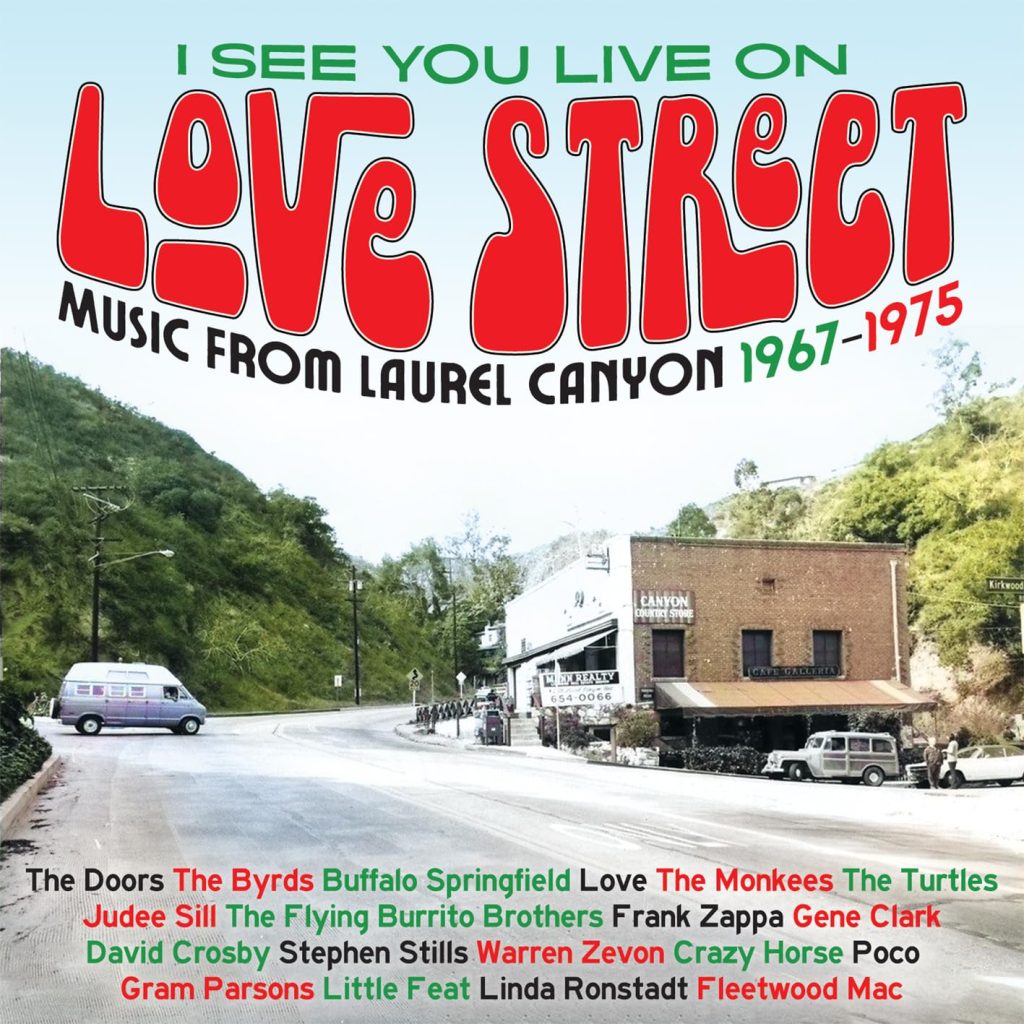 California’s Laurel Canyon music scene still garners attention half a century after its heyday. In 2019, for example, Jakob Dylan and friends produced Echo in the Canyon, a terrific film documentary and soundtrack album about the songs and artists that emerged from this neighborhood in the late 1960s and early 1970s. And now, England’s Grapefruit label has released a three-CD, 72-track, clamshell-boxed set called I See You Live on Love Street—Music from Laurel Canyon 1967–1975. The 2024 collection is available in the U.S. here and the U.K. here.
California’s Laurel Canyon music scene still garners attention half a century after its heyday. In 2019, for example, Jakob Dylan and friends produced Echo in the Canyon, a terrific film documentary and soundtrack album about the songs and artists that emerged from this neighborhood in the late 1960s and early 1970s. And now, England’s Grapefruit label has released a three-CD, 72-track, clamshell-boxed set called I See You Live on Love Street—Music from Laurel Canyon 1967–1975. The 2024 collection is available in the U.S. here and the U.K. here.
The continued focus on this music community in Los Angeles’ Hollywood Hills is understandable. For a few critical years, it was home to many of America’s most luminous and soon-to-be-luminous rock, folk and pop artists—acts such as Frank Zappa, the Mamas and the Papas, Love, the Turtles, Warren Zevon, the Byrds, Buffalo Springfield, Poco, Linda Ronstadt, Tim Buckley, Carole King, Fleetwood Mac and Joni Mitchell. They lived within a few miles of one another, traded ideas and produced a long list of great compositions and recordings.
I See You Live on Love Street, which draws its title from an included Doors song, does an excellent job of surveying the scene. The collection, which comes with an info-packed 48-page booklet, features many of Laurel Canyon’s key artists, including all the ones mentioned above except King and Mitchell (though a cover of the latter’s “For Free” is here, performed by a trio called Morning).
Note, though, that while the box makes room for a handful of hits, it tends to eschew familiar material in favor of lesser-known numbers as well as some obscure acts. The Association, for example, is represented not by any of their many successful singles but by an album track called “Come On In.” (Speaking of the Association, the program also includes “Halfway There,” an excellent song by Ruthann Friedman, who wrote that group’s “Windy.”)
Even one-hit wonders typically deliver something other than their famous track in this anthology. Scott McKenzie, for example, is known for his top 5 rendition of John Phillips’ “San Francisco (Be Sure to Wear Flowers in Your Hair).” Here, though, he offers a fine cover of the appropriately themed “Twelve-Thirty (Young Girls Are Coming to the Canyon),” the second-best song Phillips ever wrote (after “California Dreamin’,” of course). Barry McGuire, meanwhile, is featured not for his chart-topping “Eve of Destruction” but by a number called “Secret Saucer Man.” And rather than include any of the Turtles’ many major hits, this box’s compilers opted for the group’s sweet but relatively little-known cover of “Lady-O,” by Laurel Canyon folk singer-songwriter Judee Sill. The Leaves, known for their 1966 garage-rock hit “Hey, Joe,” instead deliver a song called “Twilight Sanctuary.”
Related: Another collection from the same label focuses on ’70s power pop
Also here are many tracks from artists who never scored even one hit. These include fine folk singers like Sill (her own “Crayon Angels”), Steve Noonan (Jackson Browne’s “Shadow Dream Song”) and David Blue (the self-penned “Outlaw Man”). In addition, the psychedelic rock group Clear Light delivers “How Many Nights Have Passed” from its sole LP; and a pop-rock outfit called the Sunshine Company serves up a mesmerizing cover of George Harrison’s “I Need You.”
Besides giving you a sense of how much was happening in one small neighborhood over one brief period, a key benefit of this box is that it will expose you to notable but obscure artists you wouldn’t otherwise be likely to hear. As for the many featured performers who became prominent and produced large, essential bodies of work, even they may be unknown to some listeners, especially those who weren’t around for Laurel Canyon’s glory days. If this box leads you to discover the catalog of even one such artist—Love or Tim Buckley, for example—it will have been worth the price of admission.

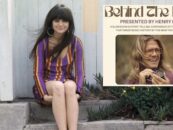
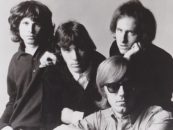
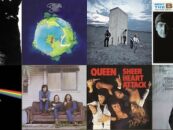
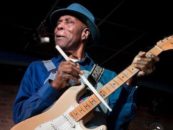

2 Comments so far
Jump into a conversationScott McKenzie’s version of “12:30” is simply beautiful. I always loved the Mamas & Papas version of that song, but his is even better. What a beautiful song, and what a great voice the man had. (It really was John Phillps’ second best song.) I saw McKenzie perform live once toward the end of his life, and he still sounded great.
I remember when Scott’s song came out, as I’d lived/raised in Hollywood; It was like a national anthem! The song was awesome, & Scott sung it beautifully. Phillips was a very inspirational writer, but, I agree with the fact that Scott sung it much better. Times were so cool then!